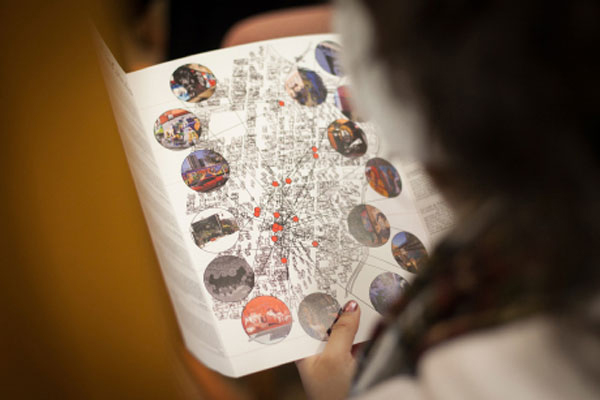Humanists explore dimensions of identity
By Linda B. Glaser

Perhaps the most fundamental question we humans ask ourselves is, “Who am I?” This quest for self-identification has spawned countless books, movies and artworks; at Cornell, explorations of identity occur in classrooms, through scholarship and at events.
In the last 25 years there’s been a real shift in student focus toward the issue, says Debra Castillo, professor of comparative literature and Latina/o studies: “There’s always been interest in social issues and the way we can bring our sensitivities to it, but as time has gone on there has been more attention to issues of identity.”
Today, even basic assumptions about identity are being called into question. C. Riley Snorton, assistant professor of Africana studies and of feminist, gender and sexuality studies, says although people are commonly referred to as “having” identity, he finds it much more illuminating to talk about people “doing” identity.
Because of the complexity in explorations of identity, studies of the topic at Cornell tend to be interdisciplinary and comparative in focus. Says Shelley Wong, associate professor of English and Asian American studies, “you really can’t understand ‘this’ in isolation from ‘that’; blackness has a certain meaning because yellowness or Asianness has a certain meaning, or whiteness or brownness or maleness and femaleness have certain meanings. It’s a hard idea sometimes for people to grasp. Our job as educators is to create a sufficiently comfortable environment so people don’t feel threatened, but that allows me to push students to think about things from a different angle.”
Russell Rickford, assistant professor of history, emphasizes the need to think critically about race and identity to see how society conditions us to think certain ways. “It’s not a foregone conclusion that people will be motivated to think critically about this society and the possibilities for social change,” he says. “In a society that’s increasingly globalized and homogenized, where the range of ideas is narrow and there’s a proliferation of information but much of it narrow, human beings won’t engage in deep thought about ourselves and our society absent the kinds of courses of study that occur in the humanities.”
Cornell has long been a leader in ethnic-related identity studies, with programs in Africana studies; Asian American studies; feminist, gender and sexuality studies; lesbian, gay, bisexual and transgender studies; Latina/o studies; Jewish studies; and American Indian and indigenous studies.
“Ethnic studies offers spaces where students feel comfortable; whether they’re part of the affinity group or not they have permission to talk about questions of race and identity,” says Derek Chang, director of the Asian American Program and associate professor of history.
In ethnic studies, there is a conscious recognition that race is deployed and constructed relationally, says Chang. Programs at Cornell are thus constructed with a comparative emphasis. As an example, Chang notes students in Asian American studies are required to take at least one course in feminist, gender and sexuality studies, Africana or the American Indian and Indigenous Studies Program, so they can study the systems of race and power experienced in relation to others.
Ethnic studies programs at Cornell have been instrumental in facilitating campus dialogue about recent national events centered around race in the United States, such as forums on events in Ferguson, Missouri, held at the Africana Studies and Research Center. Director Gerard Aching says these events are “another example of how the work of faculty in the humanities, social sciences and beyond can help us think more deeply – with sophistication and nuance – about our society’s most pressing problems and, in so doing, move us in the direction of positive solutions.”
Linda B. Glaser is a staff writer for the College of Arts and Sciences.
Media Contact
Get Cornell news delivered right to your inbox.
Subscribe